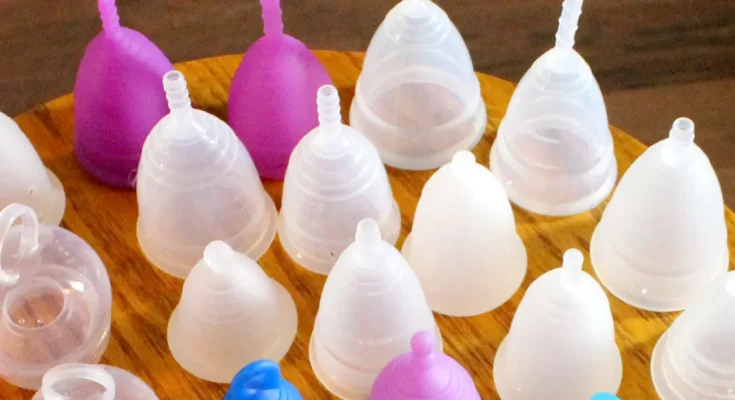One of the best things about menstrual cups is how customizable they’ve become. No longer one size fits all, modern cups now come in a wide range of sizes, shapes, and firmness levels so you can find one that actually works for your body, not against it. Whether you’re a yoga-loving athlete with a strong pelvic floor or someone navigating a low cervix or mild prolapse, there’s likely a menstrual cup out there that will feel like it was made just for you.
In this guide, we’ll walk through how to choose a menstrual cup based on your anatomy and lifestyle, with a special focus on firmer cups for active users and shorter cups for people with a lower cervix or pelvic organ prolapse. If you’ve struggled with cups before, or you’re brand new and wondering where to start, this is for you.
Why One Cup Doesn’t Fit All
Menstrual cups have exploded in popularity over the last decade, and for good reason. They’re eco-friendly, cost-effective, and can make periods feel a whole lot more manageable. But there’s a learning curve, and part of that comes down to choosing the right cup.
Things like cervix height, pelvic floor tone, and even the shape of your vaginal canal can influence how well a cup fits, how easy it is to insert and remove, and whether it leaks or feels uncomfortable. That’s why menstrual cup brands have started offering more tailored options—because comfort and function shouldn’t be a compromise.
The Role of Cervix Height
Let’s start with cervix height, since this is one of the most important factors in choosing a menstrual cup.
Your cervix changes position throughout your cycle, but during your period, it tends to sit lower. People with a low cervix (typically one you can easily reach with a finger inserted 1–2 inches) may find that standard-length cups feel too long, poke uncomfortably, or even partially sit outside the vaginal canal. That’s where shorter cups come in handy.
On the flip side, people with a high cervix may find that shorter cups migrate too far upward, making them difficult to remove. In those cases, a longer cup with a more prominent stem can be a better fit.
How do you find out where your cervix sits? It’s as simple as checking with a clean finger while on your period. If you’re curious, we can walk you through how to measure your cervix in more detail.
Cups for a Low Cervix or Prolapse
If you have a low cervix or are dealing with mild to moderate pelvic organ prolapse, a standard-length menstrual cup might not work for you. People with these anatomical features tend to do better with:
- Shorter cups designed for a low cervix
- Softer or more flexible cups that don’t add unnecessary pressure
- Wide, bell-shaped cups that can stay in place without needing to be high up in the vaginal canal
Why shorter matters: When your cervix sits low, a regular cup can end up too close to the vaginal opening. This can cause discomfort, make the stem stick out, or prevent the cup from fully opening. A shorter cup sits lower without putting pressure on the cervix or extending outward.
Why softer can help: For people with prolapse or a more sensitive pelvic floor, a softer silicone or TPE cup can be gentler and easier to manage. Firmer cups can sometimes create unwanted suction or push against pelvic structures that are already under strain.
It’s also important to consider diameter, especially for adult users. Some small-sized cups on the market are narrow enough that they don’t create a reliable seal, particularly for those who have given birth or have a wider vaginal canal. While short length is critical for a low cervix, the cup must still be wide enough to maintain a secure and comfortable fit.
Some cups to consider in this category:
- MeLuna Shorty – Designed specifically for people with a low cervix or pelvic organ prolapse, this cup is shorter than most and comes in multiple sizes and firmness levels (Classic, or Sport). Its range of diameters makes it a versatile fit for many body types.
- FemmyCycle Low Cervix – With a unique shape and built-in removal ring, this is another option tailored to low cervix anatomy, though it may not suit everyone due to its unusual design.
- Super Jennie Small – While not a dedicated low cervix cup, its softer silicone and rounded body make it a possible option for those with a moderately low cervix, depending on anatomy and flow needs.
If you’ve tried standard-length cups and felt discomfort, pressure, or incomplete insertion, switching to a menstrual cup for low cervix-specific design can make a significant difference.
Cups for Athletes and Active People
If you’re a runner, dancer, weightlifter, yogi, or just really into movement, your pelvic floor is likely stronger and more toned than average. While that’s usually a good thing, it can make it harder for certain menstrual cups to stay in place.
For active people or those with strong pelvic muscles, firmer menstrual cups tend to be the better fit.
Why firmness matters: A firmer cup resists being compressed by your pelvic muscles. If you’ve ever had a cup collapse or leak mid-squat or during a run, it may have been too soft for your pelvic floor. Firmer cups are more likely to pop open and stay sealed even during intense movement.
What to look for in a firmer cup:
- Cups made of medical-grade silicone with a high Shore hardness
- Models labeled as “sport” or specifically designed for active lifestyles
- Cups that maintain their shape even under pressure
Some great firmer cup options include:
- MeLuna Sport – Specifically designed for people with strong pelvic floors, this cup is made from a firmer TPE that holds its shape and resists compression
- Lunette Cup – A classic firm cup with a good balance of flexibility and support, popular among active users
- Yuuki Cup (Firm) – One of the firmest silicone cups on the market, this one is ideal for people who need that extra rigidity for a secure fit
Keep in mind, though, that firmness can feel different from person to person. What’s ideal for one athlete might feel too stiff for another. Some people love the feeling of stability, while others prefer just enough firmness to stay in place without added pressure.
A Note on Other Body Factors
In addition to cervix height and activity level, other body-related factors can influence your menstrual cup experience:
1. Tilted or Retroverted Uterus:
Some people with a tilted uterus find that bell-shaped or shorter cups sit more comfortably. Others may prefer softer cups that can mold more easily to internal contours.
2. Bladder Sensitivity:
If you often feel pressure on your bladder when wearing a cup, you might benefit from a softer model or one that sits lower in the vaginal canal. Firmer cups can press on the bladder and create a sensation of urgency or discomfort.
3. Heavy Flow:
Need something that can hold a lot? Look for a high-capacity cup (typically 30–40 ml or more), which may be especially helpful for people with fibroids, PCOS, or just naturally heavy periods. MeLuna, Saalt, and Super Jennie all have models designed with higher capacity in mind.
The Bottom Line: Personal Fit is Everything
When it comes to menstrual cups, the best one is the one that works for your body. There’s no universal “best” cup—just the best fit for your anatomy, lifestyle, and comfort level. Whether you need something shorter and softer to accommodate a low cervix or firmer and more resilient for your athletic routine, the right cup can transform your period into something you don’t have to stress about.
If you’ve tried a menstrual cup before and it didn’t work out, don’t give up. The fit might have just been wrong for your body at that time. With so many options now available, there’s a great chance your perfect cup is out there waiting for you to find it.



